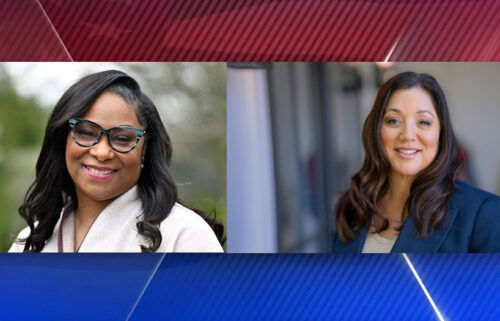Pressure mounts on Facebook amid political ad controversy
Facebook executives are facing mounting pressure, including from inside the company, to make sweeping changes to how the social media site runs political ads — including reversing a controversial policy that allows politicians to run false ads and how voters are targeted on the platform.
On Monday night, the top Democrat on the Senate Intelligence Committee Sen. Mark Warner wrote to Facebook CEO Mark Zuckerberg and warned that Facebook’s policies risked undermining American norms of “transparency, public deliberation and debate, openness, diversity of opinion, and accountability.”
It’s a further escalation of the debate over Facebook’s responsibility for policing ad content, a week after Zuckerberg testified on Capitol Hill.
The Warner letter came just hours after The New York Times reported that more than 200 Facebook employees had signed a letter raising concerns about the company’s political ad policy.
The concerns laid out by the employees and Warner go beyond the company’s fact-checking policy and raise wider concerns about the power of Facebook’s ad targeting.
Facebook employees said that political campaigns use of the company’s “advanced targeting tools” and “behavioral tracking tools” was not conducive to proper political discourse.
“The risk with allowing this is that it’s hard for people in the electorate to participate in the “public scrutiny” that we’re saying comes along with political speech. These ads are often so micro-targeted that the conversations on our platforms are much more siloed than on other platforms,” the employees wrote.
Warner raised similar concerns, saying that political ads on television and print are accessible to fact-checkers and political opponents, “As a result, strong disincentives exist for a candidate to disseminate materially false, inflammatory, or contradictory messages to the public,” he wrote.
“By contrast, social media platforms tout their ability to target portions of the electorate with direct, ephemeral advertisements—often on the basis of private information the platform has on individual users, facilitating political advertisements that are contradictory, racially or socially inflammatory, or materially false, without the same constraints as more traditional communications mediums, and without affording opposing candidates an equal opportunity to respond directly in front of the same targeted audience,” Warner wrote.
Twitter and YouTube, owned by Google, also accept false ads from political campaigns.
Facebook has created a publicly accessible political ad archive in an attempt at transparency, but clearly the Facebook employees who signed the letter to executives and Warner do not think it is sufficient.
Responding to the letter from employees, a Facebook spokesperson said in a statement, “Facebook’s culture is built on openness so we appreciate our employees voicing their thoughts on this important topic. We remain committed to not censoring political speech, and will continue exploring additional steps we can take to bring increased transparency to political ads.”
In an interview with CNN in August, Sen. Ron Wyden of Oregon called on Facebook and Google to ban political ad targeting. Facebook had no response at the time.
Facebook has argued that by not fact-checking political ads it is merely mirroring the standards used for broadcast television which has to run ads from candidates regardless of their accuracy.
Warned argues, however, that Facebook’s comparison is “inapt.”
“Broadcast licensees face legal requirements to run these ads — in addition to a range of other obligations — as a condition of holding federal spectrum licenses,” he wrote on Monday.
“A more appropriate comparison for a platform like Facebook would be cable networks, which (like Facebook) face no such prohibition on rejecting demonstrably false advertisements from political candidates — nor are they bound by related obligations such as rules on advertising rates and reasonable access requirements,” he added.
Noting that CNN had refused to run a false ad from the Trump campaign, former vice-president Joe Biden’s presidential campaign criticized Facebook for allowing the ad to run.
Facebook pointed out that broadcasters ran the ad.
Adding to the spectacle Monday was Adriel Hampton, a political activist who registered to run for governor of California so he could run false ads on Facebook. Hampton hopes his stunt will encourage Facebook to change its policy.
Correction: This story has been updated to reflect that Sen. Ron Wyden is from Oregon.



